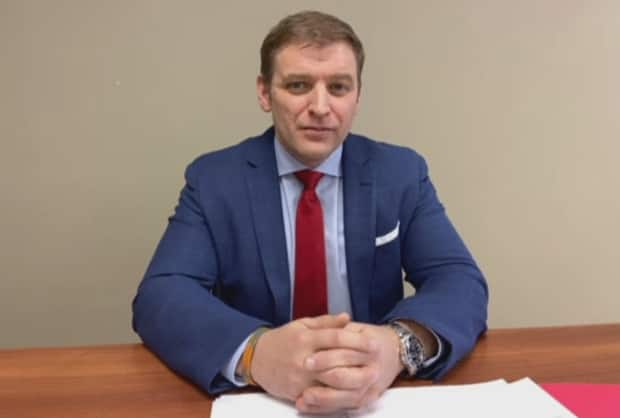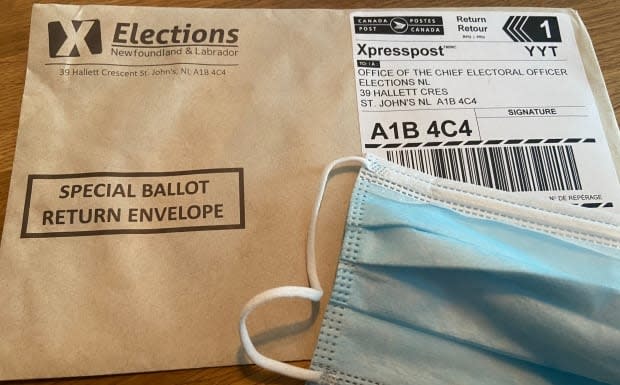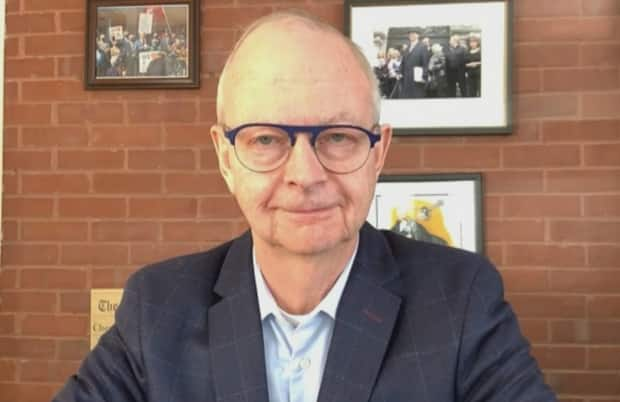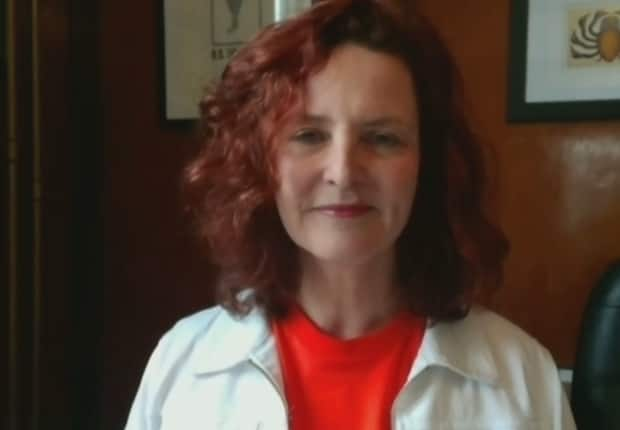'Premature to judge' voter turnout, but Andrew Furey says it will be legitimate election


Liberal Leader Andrew Furey says it's too early entertain the possibility of legal challenges to the provincial election results.
During a media availability via Zoom on Thursday morning, Furey told reporters he has confidence in the processes in place for an election that has been in flux for weeks.
"It will be a legitimate election," he said.
After advance voting wrapped up earlier this month, the in-person vote was originally set for Feb. 13. But just days before, due to an outbreak of COVID-19 in the metro St. John's area, Elections NL announced that in-person voting in nearly half of the province's electoral districts would be delayed. Then, less than 12 hours before polls were set to open in the rest of the province, a lockdown was put into place when it was confirmed the outbreak was due to coronavirus variant B117.
In-person voting was then taken off the table completely, while special ballot application deadlines were extended for a mail-in voting process.
Some people have said they couldn't access the online portal just before the deadline, and couldn't get through to call centres to get a ballot kit. With no in-person voting, those who didn't complete an application won't be able to vote, setting the province up for perhaps its lowest-ever voter turnout.
When asked if he believes the election results would be legitimate, Furey's response was brief: "Yes."
Furey said he's confident he will have the mandate needed to form a government if re-elected, but wouldn't comment on the possibility of historically low voter turnout.
There's no bogeyman here. - Andrew Furey
"I think it's far too premature to judge the turnout at this particular moment in time. I don't even have the updated numbers on how many packages have gone out," he said. "But I do encourage everybody who has a package to vote."
Before announcing the election in January, Furey said, he had looked at all the information and science available to him, and had discussed the status of the pandemic with Chief Medical Officer of Health Dr. Janice Fitzgerald.
"There was already published guidelines surrounding elections and COVID and we had already been through a byelection," Furey said, referencing the byelection he won in Humber-Gros Morne last year.
"We talked daily, of course, and we knew that there was a risk of COVID spread during the Christmas period and the New Year's period. That's why we waited until we were a healthy incubation period away from those events and not seeing any spread or outbreak. The decision was mine, of course, and mine alone, as it is the premier's prerogative."

He also said he reviewed how three other provinces ran elections during the pandemic, and had discussions with Elections NL's chief electoral officer Bruce Chaulk to ensure there were plans in place for a COVID-19-era election. Chaulk said a couple of weeks ago that in all the planning done by Elections NL, there was never any anticipation that there would be no capacity for in-person voting.
"My understanding from discussions with Elections NL is that they were ready for a COVID-style election. Again, I'm not responsible for running it, nor should I be, but they informed us and Mr. Chaulk himself was on the media telling people that they were ready for a COVID-style election," Furey said, adding that he had been assured the province's Elections Act allowed Chaulk and Elections NL to run an election in the pandemic.
"There had to be a COVID-style election, as we know. The 12-month timeline started ticking back in August, so again I'm assuming Elections NL did all that homework, as well."

Progressive Conservative Leader Ches Crosbie argued the voting situation makes it "crystal clear" that there was inadequate planning and consultation.
"It was poor planning. It was a poor election call by Mr. Furey. He did the most superficial questioning of Mr. Chaulk, the electoral officer, and it seems that Mr. Chaulk said, 'Yes, b'y, we're all ready.' Well, obviously they're not," Crosbie said Thursday afternoon.
He said Furey's election call was a mistake.
"I guess he figures he has to defend it because otherwise he's admitting he made a very grave and very serious error, which is what I think he did do."
Some experts have said a case could be made for challenging the election under Section 3 of the Charter of Rights and Freedoms if the measures in place and factors in play do not allow someone to vote, meaning there is the possibility for a legal fight regardless of the outcome.
Furey said to his knowledge, the Liberals are "not at this point" looking to retain legal counsel.
"I'm not entertaining it at this time," Furey said.
"We're trying to get through the next couple of weeks. We're not looking at challenges right now.… Elections NL has pivoted with respect to the style that is being run now, but businesses have pivoted, schools have pivoted, everyone has pivoted, and we need to make sure that we get as many as we can out to vote at this point in time."
Crosbie said the Tories are focusing on the voting process, but are also gathering complaints about the voting process, should a legal challenge arise after the votes are counted.
"We've made no decision about challenging the election or any aspect of it in court. That's something that would have to be looked at and a decision made at the end of the whole process," Crosbie said.
"We're collecting complaints and evidence of inadequacies or irregularities against the possibility that we may have to go to the law once all the dust has settled."

NDP Leader Alison Coffin said her focus was on getting people able to vote to cast a ballot, while directing people to the party's website, where they could submit a complaint.
"All manner of things could come form this election, and I'm certain that the courts will decide that," she said.
"Gathering up the concerns, I think that's gonna bolster into reforming the Elections Act, and if we see on the other side of the vote count that something needs to be done, we'll certainly have some comments to support some decision-making and some discussions for sure."
Interim economic recovery report expected soon
As for the status of the report expected from Moya Greene and the premier's economic recovery team, established in September, Furey said the interim report is still expected by Feb. 28 but he hasn't discussed it with Greene.
"I have no visibility into the report itself. As I said from the very beginning, as soon as I get it, I will release it so that everyone can have a look," Furey said, adding that the final report is expected to be completed in April.
"This report is just recommendations. Moya Greene is not the premier; they're not the cabinet. We'll take those recommendations from smart, successful Newfoundlanders who are volunteering their time to look from the outside and see if we can come up with creative, new ideas to reshape the economy of Newfoundland and Labrador, and then as a government we will take that to the people of Newfoundland and Labrador for broad consultation.
"Everyone will have a chance to have a say. There's no bogeyman here."
Furey said the last time he spoke with Greene was during the holiday season, and the conversation had nothing to do with the team or the report.
"I don't want to bias the report, as I've said from the very beginning. I want them to come with new ideas, outside-the-box ideas, and those ideas will have broad consultation. If I was to influence the report, what's the point? I could just write the report myself," Furey said.
For him to now describe it as just a discussion document is trying to backtrack. - Ches Crosbie
For both Crosbie and Coffin, the apparent lack of discussion and the overall characterization of the report from Greene was a point of confusion.
"Given that it was in her mandate to meet with him on a weekly basis … I'm a little surprised by that," Coffin said.
"I would have expected that given the gravity of the situation and the importance of the report, I would have thought they would have spoken about that on a more regular basis."
Crosbie said the Greene report was touted as Furey's "blueprint for the province" on how to deal with immediate fiscal problems, and if it doesn't turn up and get released to public on Sunday, "there is reason to wonder whether dirty tricks are not being played."
Crosbie said Furey is being "grossly negligent" if the weekly discussions aren't happening.
The characterization of the report is different from what Furey first said it would be, Crosbie added.
"For him to now describe it as just a discussion document is trying to backtrack, because when it becomes available, unless there been some political chicanery and it's had its fangs pulled out, then the people of the province will get to see for themselves what Andrew Furey's true plan for them is," Crosbie said.
'No one could have predicted the situation'
As for why he called an election for February, rather than waiting until later in the year, Furey said much of the same thing he's said since the outbreak: that he made the decision based on the low number of cases and strict public health measures that had gotten the province this far.
"There's one thing that's certain about this pandemic: we don't have any certainty. There's no certainty around vaccine supply, there's no certainty around variants, there's no certainty that we'll be out of this in the fall," Furey said.
"At the time that I made the decision, the numbers were extremely low, we were the envy of the world, there was no community spread, we were living, for all intents and purposes, a normal life, and no one could have predicted the situation that we are currently in."
If he's re-elected, Furey said, he's open to looking at changes to the Elections Act to cover such a situation arising again.
"It's always healthy after an election to reflect on what has gone well and what hasn't gone well," he said.
Furey said he will continue to participate in COVID-19 briefing updates with Fitzgerald, adding that he doesn't see it as either helping or hindering him but as a way to assure the province there is still leadership in place.
Until the election is over — mail-in ballots postmarked by March 12 will be counted, but there's no firm date for when results will be released — the province will remain in caretaker mode, Furey said.
"That's the situation we're in, and we'll navigate it to the best of our abilities."

